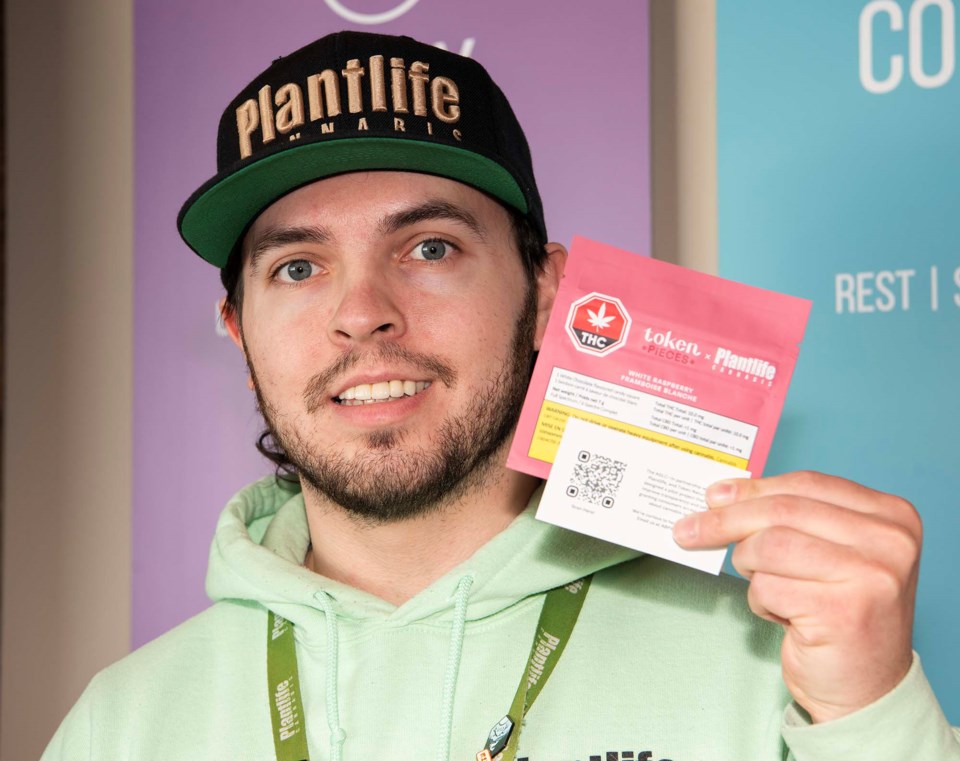Two St. Albert stores are part of a provincial pilot that aims to help customers learn more about cannabis.
Plantlife Cannabis, Token Naturals, Metrc, and Alberta Gaming, Liquor, and Cannabis kicked off a pilot project Feb. 14 to see if QR codes could give customers quick access to scientific information on cannabis products.
Plantlife Cannabis is Alberta’s largest privately owned and operated cannabis dispensary. It has two locations in St. Albert.
The idea for the pilot started when Metrc (a U.S. company that specializes in QR codes) approached AGLC about using QR codes to get the public more information about cannabis, said Keenan Pascal, owner of Token Naturals (a cannabis producer based in Edmonton). The AGLC authorized the test, and Metrc, Plantlife Cannabis, and Token Naturals paid for it.
Health Canada puts strict limits on the design and contents of packaging for cannabis products to ensure they don’t appeal to youths, said David Urbanowicz, vice-president of external affairs for Metrc.
“One of the unintended side effects of that is there’s not a whole lot of information on those products,” he said, which makes it tough for companies to distinguish themselves in the market.
Just like wine drinkers want to know minute details about the history of their drinks, cannabis users often want to know the heritage and chemical contents of what they’re consuming (as different cannabinoids produce different effects), Urbanowicz and Pascal explained. Cannabis producers have this information but can’t put it on their packaging due to Health Canada’s rules and a lack of space; all they can usually list is the CBD and THC contents. This pilot will let customers scan a QR code on a cannabis product to pull up information on its chemical contents, certifications, and more.
“It’s really just unlocking information for the consumer,” Urbanowicz said.
Pascal said this pilot would see Plantlife Cannabis distribute cannabis-infused raspberry chocolate edibles made by his company that have Metrc’s QR codes printed on their packaging. Since Health Canada objected to having the codes printed directly on packaging (after said codes had already been printed), Plantlife Cannabis staffers have covered the codes with stickers and would instead give customers cards with the code on them when they bought the edibles.
Urbanowicz said this first phase of the pilot should wrap up in March.
Pascal said he hoped this pilot would prove to Health Canada that these codes could be safely used and show customers that their products were safe and tested. He planned to roll out the codes to more of his products later this year.
In a media statement, Service Alberta and Red Tape Reduction Minister Dale Nally said this project showed how Alberta is using technology to increase consumer confidence, reduce inefficiencies, and keep Albertans safe.



